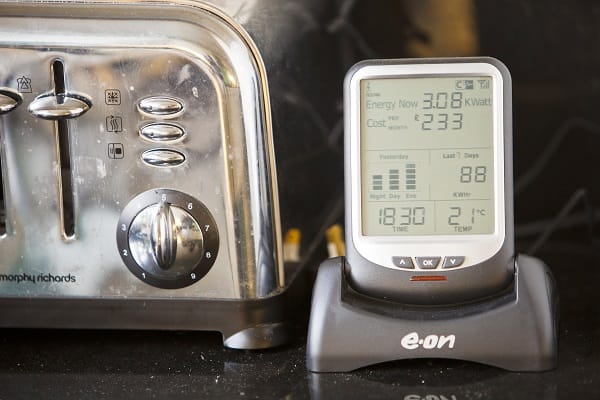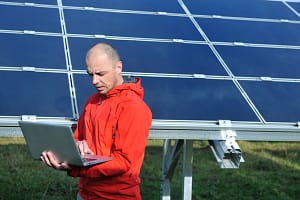In today’s competitive business landscape, every penny counts. One area where businesses can significantly reduce costs is in electricity consumption. By investing in energy-efficient appliances, companies can not only lower their utility bills but also contribute to a greener environment. In this article, we’ll explore eight essential appliances that can help businesses save on electricity.
Choosing energy-efficient appliances
When choosing appliances for your business, prioritising energy efficiency is paramount. Opt for appliances boasting high Energy Star ratings and other certifications signifying exceptional energy performance. Factor in considerations like size, capacity, and features to ensure the selected appliances align with your business requirements while keeping energy consumption to a minimum. For tailored advice on selecting energy-efficient appliances tailored to your business needs, explore the insights provided by businesselectricityprices.org.uk. Their resources can guide businesses in making informed decisions to optimize energy usage and reduce operational costs effectively.
Refrigerators and freezers
For businesses that rely on refrigeration, investing in energy-efficient models can lead to significant savings over time. Look for refrigerators and freezers with features such as high insulation levels, energy-efficient compressors, and automatic defrost functions. These appliances not only reduce energy consumption but also help preserve perishable goods more effectively.
LED lighting
LED lighting is a game-changer when it comes to energy efficiency. Unlike traditional incandescent bulbs, LED lights consume significantly less energy and last much longer. For businesses, switching to LED lighting can result in substantial electricity savings while providing better quality illumination for workspaces.
Smart thermostats
Smart thermostats offer precise control over heating and cooling systems, allowing businesses to optimize energy usage based on occupancy and usage patterns. By automatically adjusting temperature settings, smart thermostats reduce energy waste without sacrificing comfort. Integration with building automation systems further enhances efficiency.
Energy-efficient HVAC systems
Heating, ventilation, and air conditioning (HVAC) systems are among the biggest energy consumers in commercial buildings. Investing in energy-efficient HVAC equipment, such as high-efficiency furnaces and variable-speed air conditioners, can lead to significant long-term savings on utility bills. Regular maintenance is also crucial for ensuring optimal performance.
Office equipment
Office electronics, including computers, printers, and copiers, contribute to overall energy consumption in businesses. Opting for energy-efficient models and enabling power-saving features can help reduce electricity usage without compromising productivity. Additionally, encouraging employees to power off equipment when not in use can further save energy.
Water heaters
Hot water consumption is a significant expense for many businesses, particularly those in the hospitality and food service industries. Energy-efficient water heaters, such as tankless or heat pump models, can deliver hot water more efficiently while consuming less energy. Proper insulation and regular maintenance are essential for maximizing efficiency.
Solar panels
Harnessing solar energy is a sustainable way for businesses to reduce reliance on the grid and lower electricity bills. Solar panels can be installed on rooftops or grounds to generate clean, renewable energy. While the initial investment may be substantial, businesses can benefit from significant long-term savings and potential government incentives.
Energy monitoring systems
Implementing energy monitoring systems allows businesses to track and analyze their electricity usage in real-time. By identifying energy-intensive processes and equipment, businesses can implement targeted strategies to reduce waste and optimize efficiency. Advanced monitoring technologies provide insights that enable informed decision-making for further energy savings.
Government incentives and rebates
Many governments offer incentives and rebates to encourage businesses to invest in energy-efficient appliances and renewable energy solutions. These programs can offset the initial costs of purchasing and installing energy-saving equipment, making them more financially accessible for businesses. Explore available incentives and take advantage of tax credits to maximize savings.
ROI and cost analysis
Before investing in energy-efficient appliances, businesses should conduct a thorough cost analysis to assess the return on investment (ROI). Consider factors such as upfront costs, energy savings, maintenance expenses, and potential incentives to determine the payback period and long-term benefits. In many cases, the savings realized over time far outweigh the initial investment.
Employee training and awareness
Engaging employees in energy-saving practices is essential for maximizing the benefits of energy-efficient appliances. Provide training and resources to help staff understand the importance of conserving energy and how they can contribute to company-wide efforts. Encourage simple actions such as turning off lights, adjusting thermostats, and unplugging devices when not in use.
Case studies
Real-life examples illustrate the tangible benefits of investing in energy-efficient appliances for businesses. Case studies showcasing companies that have successfully reduced their electricity bills through appliance upgrades and operational changes can inspire others to follow suit. Highlight specific strategies implemented and quantify the resulting cost savings to demonstrate the potential impact.
Investing in energy-efficient appliances is not only environmentally responsible but also financially savvy for businesses. By choosing the right appliances and implementing energy-saving strategies, companies can significantly reduce their electricity bills while enhancing operational efficiency. Take advantage of available incentives and resources to make the transition to a more sustainable business model.






Leave a Comment